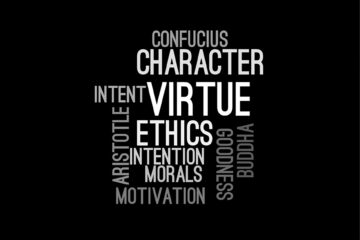![]()
Introduction
India is a diverse country with over 136.64 crores of population. It comprises of people from various religious background. Their beliefs, ideas are different from people from different religion. However, the question arises is what are the matters that ought to be taken into consideration as the regulation and what not should be added to them, which source of law will be considered as valid and what are the laws that will be followed by the group of people.
There are two main religions i.e., Hindus and Muslims. They comprise the major part of the Indian society. Along with them there are other religions like Sikh, Jain, Christianity, etc. Therefore, it is important to observe all of the sources which can be considered upon before framing the rules and regulations affecting the lives of people particularly in personal subjects like divorce, marriages, inheritances, etc.
The Bhagwat Gita
The Shrimad Bhagavad Gita regularly called as the Gita is a 700-verse Hindu scripture this is a part of the epic Mahabharata (chapters 23–40 of Bhishma Parva), dated to the second half of the first millennium BCE and exemplary for the rising Hindu synthesis. It is taken into consideration to be one of the holy scriptures for Hinduism. The Gita is about a story framework of a communication among Pandeva prince Arjuna and his manual and charioteer Krishna, an avatar of Lord Vishnu.
However the Hindu holy book depicts mostly Hindu laws. Hindu laws are a set of laws (mainly personal laws) which covers a bunch of social, personal arears of a Hindu. These areas include marriage, divorce, adoption, inheritance, minority and guardianship, family matters, etc.
However, it is not that only people belonging to Hinduism flows the Hindu laws. Various other communities like Jains, Sikhs, Brahmo-Samajists, Buddhists, Prarthana-Samajists, the Virashaivas and Lingayats and the Santhals of Chhota Nagpur[1] also follows this Hindu Laws.
It should be noted that the word ‘Hindu’ has not been stated as a religion in the judicial system. For determining who should follow the rules and regulations led by the judiciary, it was important to determine that who was considered as a ‘Hindu’ but none of the statutes fulfilled the purpose. Finally, it was held that the law would not be applied to a person who is governed by any other law. In simple words, Hindu laws would not be applied to a follower of Islam, Christianity, Parsi, Jew, etc.
In Hinduism, the Hindu Laws are considered as the ultimate law because it is believed by heartedly that Sanatan Hindu Sages[2] got a certain kind of spiritual power through which they can communicate with God, who gave the laws for the humans. However, it is just a word of faith, it does not content any authentication but Hindus continued to believe this.
Sources of Hindu Law
There are plenty number of sources from which modern Hindu Laws reformed on record.
Ancient Sources
- Shruti[3]: Shruti in Sanskrit means anything which has been heard. The word has been originally transformed from the root word “shru” which means ‘to hear’. According to the Indian History, it is one of the first and primary sources of Hindu laws. It was also believed that this is the language of the almighty through which they are revealing by the help of the Sanatan Hindu Sages.
- Smritis[4]: The word ‘Smriti’ means ‘memory’ which originally came from the root sanskrit word “smri”. It means ‘to remember’. According to the ancient records, the sagas were unable to remember every law which was told by the almighty. Therefore, they came up with the solution in which they started writing their ideas about the law and translated in their own language with the help of their memories.
One thing should be noted that there are two kinds of Smritis which are present i.e., Dharma sutras and Dharma shastras. However, the subject matter of both the types of smriti are almost same. The only difference which lies between them is that the Dharma Sutras are constructed in a small maxim (sutras) and on the contrary, the Dharma Sastra has been written in poetry (shlokas). But both they can both interchange between each other. - Digests and Commentaries[5]: After the era of Shruti and Smriti, the era of commentators (Tika or Bhashya) and digests (Nibandhs) came into existence. From 7th century to 1800 A.D, for more than thousand years, this reference took place. In the starting part of this phrase, majority of the commentators were written by the use of the memory of the sagas. However, the later part was carried out with the digests which is a combination of various Smritis while explaining and reconciling the various contradictions.
However, this was the time when various schools were established in which Hindu Laws was one of the major subjects. This was the era where different Hindu law came into existence as different people wished to adhere to one or more schools for various reasons. The Dayabhaga and Mitakshara are the two major schools of Hindu law. - Custom:
Customs are one of the most important sources of the Hindu Laws. From the ancient period, Custom or ‘achara’ are referred to the highest rule or ‘dharma’ of the Hindus. These are rules and regulations which a society, or a group of people from a particular class or people from a geographical location follows. It is more superior than written law.
There are various traits that should be fulfilled for affirming a custom to be a legitimate one: –- The custom need to be an ancient one.
- The custom need to be certain and have to be free from any form of ambiguity.
- The custom ought to be reasonable and not in opposition to any existing law.
- The custom must have been constantly and uniformly observed or followed for a protracted time.
After Independence, the Indian Courts started recognising three types of customs according to law:
- Local Customs: These are the types of customs which the people of a certain geographical location follow after passing by all the traits which has been discussed above.
- Class Customs: These are the types of customs which the people belonging from certain classes follow after passing by all the traits which has been discussed above.
- Family Customs: These are the types of customs which the people of a particular family follow after passing by all the traits which has been discussed above.
Modern Sources
- Justice, Equity and Good Conscience: They can also be termed as Natural Law. Soemtimes, there might be a dispute which came into the court but it cannot be settled through any pre-defined, existing law in any of the resources available. The court cannot refuse to settle the dispute for the absence of the law and they’re under the obligation to determine any such cases also. Therefore, to figure out such cases, the court reply on the primary rules and values of the society and fulfil the requirement of fair play and property.
- Legislations: Legislations are the Acts of the Parliament that have been playing a profound function within the formation of Hindu law. After India got complete independence, a few vital components of Hindu Law were codified. Few examples of vital Statutes are The Hindu Marriage Act, 1955, The Hindu Adoptions and Maintenance Act, 1956, The Hindu Succession Act, 1956, The Hindu Minority and Guardianship Act, 1956, etc.
- Precedents: After the established order of the British government, the hierarchy of Courts came up. Precedent is a judgment or decision of a court that is mentioned in a subsequent dispute for instance or analogy to justify or deciding a similar case or factor of law within an identical manner. Common law and equity, as observed in English and American legal systems, depend strongly on the frame of setting up precedents, despite the fact that in the original improvement of equity the court theoretically had freedom from precedent.
The Quran
Muslim Laws are basically considered as personal laws which are only abided by the Muslims in some specific matters. It means that the Courts of India can only interfere in the civil matters which is applied to Muslims as a personal law.
In religious context, the word ‘Islam’ means “submission to the will of god”
Muslim laws are the ultimate laws which has been derived from the holy book ‘Quran’. However, Islamic laws pointed out the responsibilities and duties of a person who is following Islam instead of his rights.
The beginning of Muslim law was recorded in Arabia wherein the Muslim prophet Mohammad enunciated Islam. The goal of Islam is to create an experience of obedience and submission to ‘Allah’. His ordinances and thereby to stroll on the proper path.
Muslim law includes the injunction of the Quran, of the traditions, brought by the exercise of the prophet (Sunna), of the common opinion of the jurists (ijma), of the analogical deductions of the three (qiyas). Further, it has been supplemented through juristic preference (Istihsan), public policy (Istislah), precedent (Taqlid), and impartial interpretation (Ittihad).
Sources of Muslim Laws
Primary Sources
Primary sources are those on which Muslim laws relied on. These sources are the foundation of Muslim laws. Primary sources of Muslim law are:
- Quran: Muslim laws are based upon Al-Quran. The word ‘Quran’ is an Arabic phrase which means ‘to read’. Every follower of Islam believes that the holy book ‘Quran’ lived from eternity. It has the essence of ‘Allah’.
The holy book is the base on which the structure of Islam stands upon. It states the obligations for every individual towards their society, spirituality, social life.
It consists of the very phrases of God as communicated to prophet Mohammad through angel Gabriel[6]. It was given to the arena in fragmentary forms, extending over a duration of 23 years. In the beginning, it had for its objects repealing objectionable customs, including usury, limitless polygamy, and gambling, etc., and effecting social reforms, consisting of elevating the legal status of women and equitable department of the matters of inheritance and succession.
However, the holy book ‘Quran’ cannot be amended by the court. The legal system does not hold any right to modify it. This judgement was passed in Aga Mohammad Jaffer v. koolsom Bee bee (1895)[7]. - Sunnat: The word ‘Sunnat’ means the ‘trodden path’. It denotes a few types of duties and some precedents. It is the perception of Muslims that revelations have been of two kinds- manifest (zahir) and internal (batin). Revelation of the manifest is a communique that is created by angel Gabriel beneath the way showed by Allah to Mohammad.
The holy book, Quran consisted of various revelation of manifest. Internal revelation is an opinion of the prophet that is added on occasion on questions that took place to be raised earlier than him. Sunnat approaches the model conduct of the prophet. The narrations of what the prophet said, did, or tacitly allowed are known as hadith or traditions.
However, the traditions were not decreased to writing at some point of the life of Mohammad. They have been preserved as traditions passed down from era to era by authorized persons. The significance of the hadith as a crucial supply of Muslim law has been laid down within the Quran itself.
Secondary Sources
- Urf or Custom: Custom is one of the ancient sources of Muslim law on record. It played a significant role in shaping the whole Islam. However, only those customs which are in parallel with the Muslim law has been declared as valid.
- Judicial Decisions: These decisions have appeared as precedents for future cases. Judicial selection is one of the distinguishing functions of English law. In British India, Warren Hastings made the provision that it is the only judiciary device that can deliver new rules in the personal laws of Hindus and Muslims. Therefore, there are a variety of judicial decisions that have given new figures to Muslim law.
- Justice, Equity and Good Conscience: Abu Hanifa, the founder of Hanafi sect of Sunni presented the doctrine of equity, justice & good conscience and thus it is one of the important sources of Muslim law. These principles of Muslim law are known as ‘Istihsan’ or ‘juristic equity’. The precept said that rule of law primarily based on the analogy can be set apart at the choice of the judge on a liberal creation or juristic choice to fulfil the necessities of a specific case.
- Legislation: In India, Muslims are also abided by diverse laws and legislation which are passed both by the parliament and by the state legislature such as-
- The Usurious Loans Act, 1918
- Religious Toleration Act
- Freedom of Religion Act, 1850
- The Mussalman Wakf Validating Act, 1930
- The Shariat Act, 1937
- Dissolution of Muslim Marriage Act, 1939
These acts have extensively affected, supplemented, and changed Muslim law. In 1986 an act i.e., the Muslim Woman (Protection of Rights on Divorce) Act, 1986 to offer separate laws to recognize the divorced Muslim women was enacted by the Indian parliament. As per the time and circumstances, the Indian legislature enacted rules and laws to meet the need.
The Bible
The Bible does not throw the spotlight mainly on the topics of secular laws (i.e., non-religious laws), however, what it does say is about the laws that had an effect on legal systems in many parts of the world. It indicates that historical Hebrews took the existence of an advanced legal system for granted. They additionally endorse that the Bible’s training for social norms is complex.
On one hand, many passages emphasized appreciation for the authority and reputation of traditional social hierarchies that kept different section of people such as slaves, servants, the poor, and women in subordinate roles within the society.
In the contrary, different passages understand the need for treating everyone equally and for heading off the corruption that wealth and power people make possible. A few passages additionally point to underlying equality amongst all of us.
We are mostly familiar with the 10 commentaries in the bible which we take as good advice such as no murder, no stealing, honour your parents and the list goes on. And those are just the first 10, there are actually a total of 613 comments which are found in the first 5 bibles which in Hebrew are called “The toroh[8]“. Now the word in English is known as the “Law” because it has all these laws in it. And as you read through them, you must wonder that what is the necessary of these laws well the translation is a bit confusing because as “the toroh” has laws in it the book itself is fundamental a story about how God is creating new kinds of people who are fully able to love God and love others and when jesses talked about “the toroh”, he said that he was bring that story into reality.
Therefore, the holy book is a path way of rules and moralities for the people of Christianity in different parts of the world.
Conclusion
Hence, we can conclude that apart from various sources from which rules and regulations has been created for each part of the world, the holy books of each religion plays a vital role individually. They depicts the pathway through which people should walk to get the ultimate happiness of life.
References:
[1] Legal Service India.com, Sources of Hindu Laws, Debangshu Khettry (31st Aug, 2021, 7:00 PM) http://www.legalservicesindia.com/article/329/Sources-of-Hindu-Law.html
[2] Haribhakt, Modern Inventions stolen from Vedas, Haribhakt (1st Sept, 2021, 10:00AM) https://haribhakt.com/modern-inventions-stolen-from-vedas/
[3] Britannica, Shruti, Britannica (1st sept, 2021, 11:00 AM) https://www.britannica.com/topic/Shruti
[4] Britannica, Smriti, Britannica (1st sept, 2021, 12:00 AM) https://www.britannica.com/topic/Smriti
[5] Nishant Yadav, Sources of Hindu Laws, StuDocu (1st sept, 2021, 7:00 PM) https://www.studocu.com/in/document/maharishi-dayanand-university/llm/sources-of-hindu-law/7525960
[6] Encyclopedia, Islam, Encyclopedia (2nd sept, 2021, 4:00 PM) https://www.encyclopedia.com/philosophy-and-religion/islam/islam/islam
[7] Scribt, Family Law II (Consolidated), Rainapuri1 (1st Sept, 2021, 10:00AM) https://www.scribd.com/document/510552328/Family-Law-II-Consolidated
[8] Encyclopaedia, Toroh, Encyclopaedia (2nd sept, 2021, 7:00 PM) https://en.wikipedia.org/wiki/Torah



0 Comments